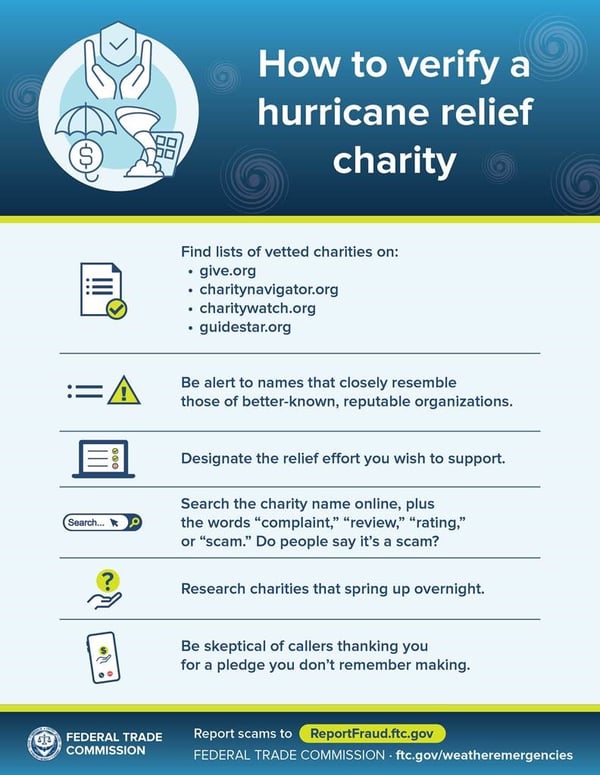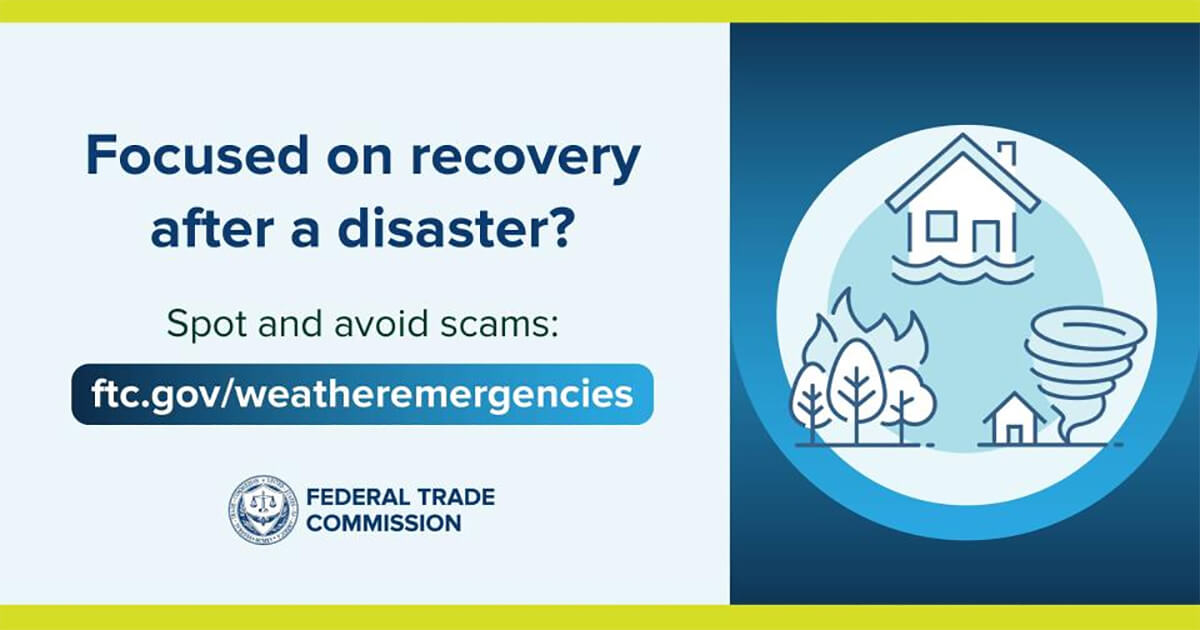Dealing with the aftermath of a wildfire, flood, hurricane, tornado, or other disaster is never easy. But knowing how to recognize and avoid common scams can help you protect your finances and personal information.
- Avoid clean-up and repair scams. After natural disasters, unlicensed contractors and scammers may appear with promises of quick repairs, clean-up, and debris removal. Some may demand upfront payment and not do the work, claim you’ll get a discount but quote outrageous prices, or lack needed skills. Before anyone starts work:
- Check them out. Ask for IDs, licenses, proof of insurance, and references. See if local contact info is on their trucks. Check with state and local consumer protection offices for complaints.
- Get more than one estimate. Ask people you trust for recommendations.
- Read the contract carefully. Make sure all promises are in writing and that you understand what you’re signing.
- Never pay in cash. And never make the final payment until the work is done and you’re satisfied with it.
- Spot imposters. Imposter scams come in many varieties but work the same way: a scammer pretends to be someone you trust and tries to convince you to send them money or give personal information.
- Some scammers pretend to be government officials, safety inspectors or utility workers who say immediate work is required. Ask for IDs. If anyone asks you for money or your financial information, like your bank account or credit card number, it’s a scam.
- Know that FEMA doesn’t charge application fees. If someone wants money to help you qualify for FEMA funds, it may be a scam.
- Be alert to job scams. You may find yourself out of work after a disaster strikes. To trick people looking for honest work, scammers advertise where real employers and job placement firms do. They lie about your chances of getting a job and often ask you to pay before you get one — which is a sure sign of a scam. You can get real help finding work from:
- CareerOneStop. Sponsored by the U.S. Department of Labor, CareerOneStop lists hundreds of thousands of jobs.
- State and county offices. Your state’s Department of Labor may have job listings or be able to point you to local job offices that offer counseling and referrals.
- College career service offices. See what help your school can offer. If you’re not a current or former student, some schools still may let you look at their job listings.
- Spot disaster-related charity scams. Scammers will often try to make a quick profit from the misfortune of others, including when disasters strike. Check out the FTC’s advice on donating wisely and avoiding charity scams and on avoiding flood-damaged cars.

- Be wise to rental listing scams. If you’re looking for a place to live, steer clear of people who tell you to wire money or who ask for security deposits or rent before you’ve met or signed a lease.
- Some scammers hijack a real rental or real estate listing by changing the email address or other contact information and placing the modified ad on another site.
- Other rip-off artists make up listings for places that aren’t for rent or don’t exist and try to lure you in with the promise of low rent or great amenities.
The views, information, or opinions expressed in this article are solely those of the author and do not necessarily represent the views of Citizens State Bank and its affiliates, and Citizens State Bank is not responsible for and does not verify the accuracy of any information contained in this article or items hyperlinked within. This is for informational purposes and is no way intended to provide legal advice.

